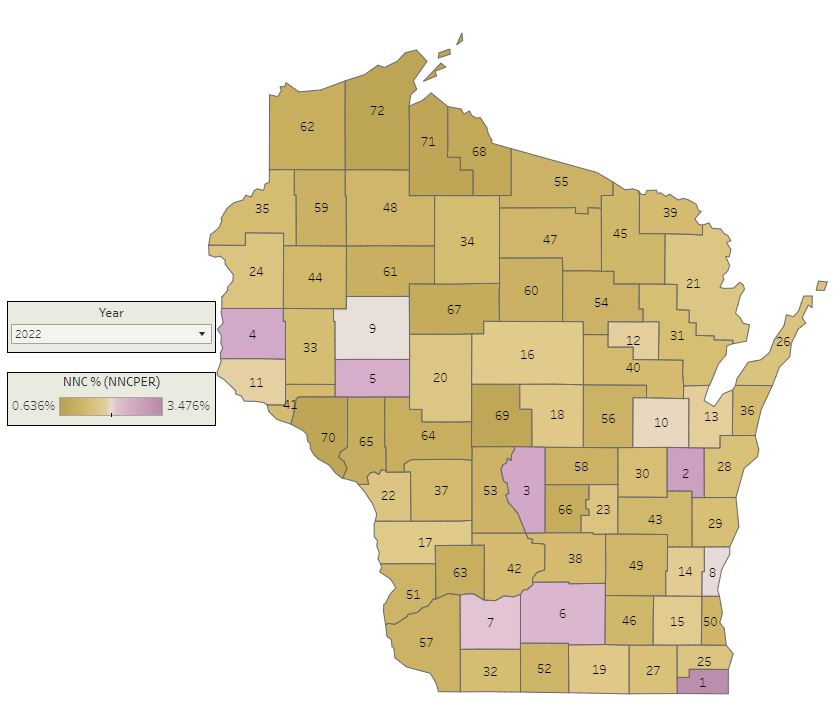Same plan from last budget
Argues property taxes should be 9% higher than they are now
63 out of 72 counties would have higher property taxes this year under the policy
MacIver News Service | Oct. 13, 2022
By Bill Osmulski
Gov. Evers’ top budget priority after he wins reelection will be raising property taxes, he admitted during a Rotary Club luncheon in Milwaukee this week.
“The State of Wisconsin has failed its municipalities,” Evers said.
Evers lamented that some municipalities are not allowed to increase their tax levy every year. The reason for that is how Wisconsin’s property taxes are structured.
Local government can only increase its tax levy when it has net new construction. It makes sense. When a new building goes up in town, that building’s owner will be paying property taxes, and so the town will get to collect more property taxes than it did before. However, some years, there is no new construction in town, and therefore, the local government cannot increase its tax levy.
(Watch this video for a quick crash course in how Wisconsin property taxes work.)
Gov. Evers wants local governments to be allowed to increase their tax levies by a minimum of 2 percent, even if there wasn’t enough net new construction to justify it. That means everyone’s property taxes would go up to fill that gap.
“It can’t be a zero percent increase,” Evers said. “It is my top priority in this next budget. Period.”
It’s not a niche issue. If this policy was in place this year, property taxes would be higher in 63 of Wisconsin’s 72 counties. Last year, it would have been higher in 66 out of 72 counties. That’s just based on the averages provided by the Wisconsin Department of Revenue.

In reality, virtually every property taxpayer in the state would be impacted. Setting the minimum net new construction to 2 percent is not a new idea. Gov. Evers proposed it in the last budget. The Republican-led legislature took it out.
Back then, the Department of Revenue provided every municipality, town, and county’s net new construction as spreadsheet files that could be searched. The MacIver Institute conducted an analysis and found that out of the 1,904 municipalities in Wisconsin, only 69 of them would not have seen higher property tax bills because of the policy.
Evers goes even further. At the Rotary Club, he argued that if his policy was in effect for the past ten years, then local revenue would by 9 percent higher than it is now. Because that would not be tied to any actual construction, the cost would have fallen entirely on local property taxpayers. That means, if Evers had his way, property tax bills in Wisconsin would currently be 9 percent higher than they are today.